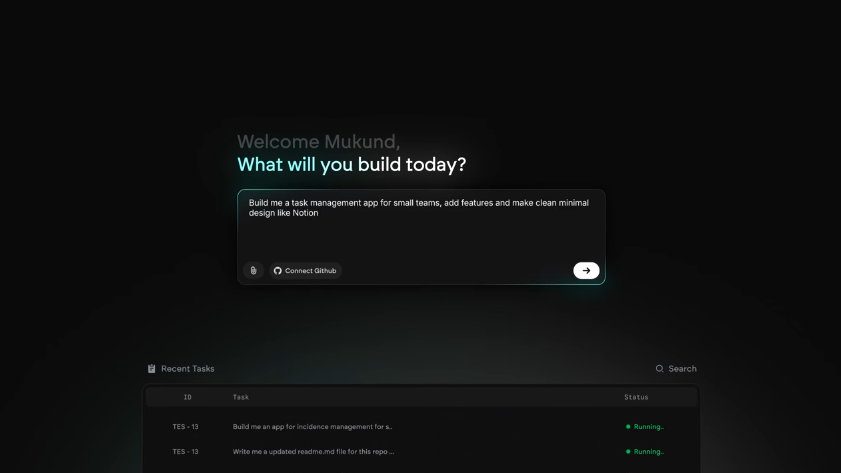AI at the Edge and Beyond: Recalls, Updates, and the New Consumer Tech Landscape of 2025
Author: Tech Desk

Across the technology landscape in 2025, artificial intelligence is no longer a novelty but a pervasive operating principle that touches hardware design, software experiences, and even the safety systems that underpin everyday mobility. From edge devices that process data at the source to cloud services that orchestrate complex tasks, AI is shaping what consumers expect: faster responses, smarter assistants, and more intuitive interfaces. The most visible signals of this shift arrive not only in flashy gadgets but in the steady cadence of regulatory actions, platform updates, and startup funding that together redraw the boundaries of what tech can and should do. The articles surveyed for this report paint a broad picture: automakers issuing recalls after hybrid systems glitches; big tech firms refining mobile apps with AI-powered writing, search, and voice features; hardware companies marketing energy-efficient AI accelerators for on-device inference; and venture capital flowing toward platforms that promise to turn raw data into actionable intelligence. Taken together, these developments suggest an ecosystem that is learning to balance performance, safety, privacy, and user trust at scale.
On the safety front, the recall announcements issued in several Gulf and global markets illustrate how AI-enabled propulsion and vehicle systems intersect with regulatory scrutiny and consumer protection. In one case, the Ministry of Commerce and Industry, working with a major local dealer network, announced a recall of specific Lexus and Toyota hybrid models, including the Lexus 700 Hybrid and the 2025 Toyota Land Cruiser 300 Hybrid. The recall cited a possible defect that could affect long-term reliability or safety, triggering a coordinated response across brands that share platforms or supplier ecosystems. While such regulatory actions can be disruptive for manufacturers and owners alike, they underscore a critical truth about modern AI-enabled vehicles: even as automation and electrification promise safer, more efficient driving, hidden software and hardware integration issues can surface under real-world conditions. The ongoing process of identifying, recalling, and rectifying these issues is a reminder that AI in mobility must be supported by rigorous testing, transparent communication with customers, and robust quality controls across the supply chain.

Lexus, Toyota, Mazda and Peugeot models recalled for possible defects in hybrid systems.
Beyond safety recalls, the year has seen a wave of productivity-related AI enhancements in mainstream software. Notably, major apps are revamping Android and desktop experiences to help users write, search, and navigate more efficiently. A leading suite of updates envisions new AI-assisted features within Google Docs for Android, including a streamlined user interface designed for one‑handed use, Gemini-powered summaries, and text-to-speech capabilities that can read documents aloud. The aim is to reduce friction for mobile workers who rely on documents to coordinate projects, draft proposals, and manage communications on the go. As with any AI integration, the value rests on accuracy, control, and privacy, with enterprise subscribers often demanding stronger governance around data usage and model personalization. These changes also reflect a broader push to embed AI into everyday workstreams, turning smartphones into more capable productivity hubs that can rival traditional desktop software when connected to cloud services.
Hardware advances are also following an edge-first logic, with semiconductor designers emphasizing low power consumption, latency, and on-device intelligence. Lattice Semiconductor, a long-time player in low-power programmable hardware, recently announced its participation in the FPGA Horizons Conference in London, where it will showcase how edge AI is moving beyond experimental demos toward practical deployments. The focus is on how small, efficient FPGA and SoC solutions can run AI inference locally—think real-time anomaly detection in industrial sensors, on-device speech processing, and autonomous control loops in consumer electronics. The emphasis on edge AI aligns with a broader industry trend: keep data processing close to data sources to reduce bandwidth requirements, protect privacy, and meet stringent latency targets in applications ranging from industrial automation to wearable devices. The announcements hint at a future where AI no longer depends on a remote data center for every decision, enabling faster, context-aware responses even in bandwidth-constrained environments.

Lattice Semiconductor to showcase edge AI innovations at FPGA Horizons Conference.
In the media and entertainment space, AI‑assisted workflows are quietly expanding professional toolkits. A notable development is the reintegration of desktop DJ software support for Spotify Premium users, restoring interoperability with popular apps such as djay, Rekordbox, and Serato DJ after a multi-year hiatus. For professional DJs, producers, and venues, this move reduces workflow friction, enabling library synchronization, track analysis, and performance tweaks to occur within familiar software ecosystems. Industry observers say the change could strengthen Spotify’s appeal to music makers who rely on precise timing, curated catalogs, and cross‑platform control. It also signals how streaming platforms may recalibrate their strategic priorities to balance licensing realities, platform incentives, and the needs of creators who operate at the intersection of music and technology.
Smartwatches and wearable devices are becoming testbeds for AI-driven health and usability features. Samsung’s One UI 8 Watch Beta rollout extends Wear OS 6’s AI-enabled capabilities to the Galaxy Watch 6 series as well as older Classic models. The update promises deeper sleep analysis, more responsive health tracking, and interface refinements designed to make interactions feel more natural and less disruptive to daily activities. Such updates reflect a broader industry strategy to convert wearables from novelty gadgets into essential health and productivity tools. By combining advanced sensors with on‑device processing and AI-driven insights, manufacturers aim to deliver actionable information—whether it’s better sleep stage detection, heart rate monitoring, or smart reminders—without excessively draining battery life or exposing users to privacy risks inherent in cloud‑based processing.

Samsung expands AI features with One UI 8 Watch Beta for Galaxy Watch 6.
Startup funding in AI-powered software continues to accelerate, underscoring investor confidence in platforms that lower the barriers to building intelligent apps. Emergent Labs, a San Francisco‑based startup focused on a high‑level AI platform for coding, recently closed a $23 million Series A led by Lightspeed Venture Partners, with participation from Y Combinator and notable technologists including Jeff Dean. The round positions Emergent to broaden access to tools that automate aspects of software development, enabling developers to compose, test, and deploy AI-powered applications with less hand‑coding. This funding trend dovetails with a growing ecosystem of AI agents, copilots, and generative tooling that is gradually lowering the barrier to prototyping and production. For developers and enterprises, such platforms could shorten cycle times, reduce cost, and unlock new forms of collaboration between human engineers and AI systems—though questions about reliability, governance, and security remain central to ongoing discussions about AI governance.
Amid the broad excitement, some voices urge caution about how AI encroaches on the workplace and consumer life. An opinion piece in a technology outlet drew attention to concerns about AI‑driven labor and the quality of AI integrations, arguing that merely adding AI features can lead to a pendulum swing toward ‘AI workslop’ if not anchored by discipline and clear purpose. The piece argues for better curation of AI capabilities, improved user education, and stronger accountability for outcomes. This tension—between a dazzling array of AI features and the risk of diminishing returns or eroding professional standards—reflects a mature market where buyers increasingly demand transparency around data usage, model limits, and the real value of AI‑assisted workflows. The industry’s response to such criticisms will shape how aggressively firms pursue AI enhancements and how they balance automation with human oversight across design, development, and daily operations.
Meanwhile, the mobile‑hardware battleground shows rapid iteration around user experience and AI-enabled features such as mobile assistants, on-device inference, and context-aware apps. The smartphone arena continues to echo the rapid pace of news about the OnePlus and Google ecosystem, with leaks and previews highlighting ambitious camera and AI capabilities—while competitors test the limits of integration, performance, and battery life. Analysts note that the race is less about raw specifications and more about how intelligently devices can interpret user intent, anticipate needs, and present information in digestible, action‑oriented formats. This shift is closely watched by investors and consumers alike as it signals whether AI-centric software updates can translate into tangible, everyday improvements rather than mere novelty.

Emergent Labs funding round highlights AI development platforms.
Taken together, these threads illustrate a technology landscape that is increasingly AI-first but not AI-dominant. The most promising developments blend on‑device intelligence with privacy-conscious cloud capabilities, deliver practical value to workers and consumers, and are backed by robust safety and governance mechanisms. Regulators’ willingness to mandate recalls in the automotive sector, platforms’ efforts to extend AI features to wearables and productivity apps, and the surge of funding for AI tooling all point to a 2025 that favors usable, trustworthy AI at the edge and in the cloud. If the industry can sustain a balance between performance, safety, and user control, the next wave of AI innovations—spanning smarter hardware, more capable software, and smarter business models—could become a reliable driver of productivity, creativity, and economic growth in the years ahead.

Alibaba shares rise to a four-year high on AI spending news.